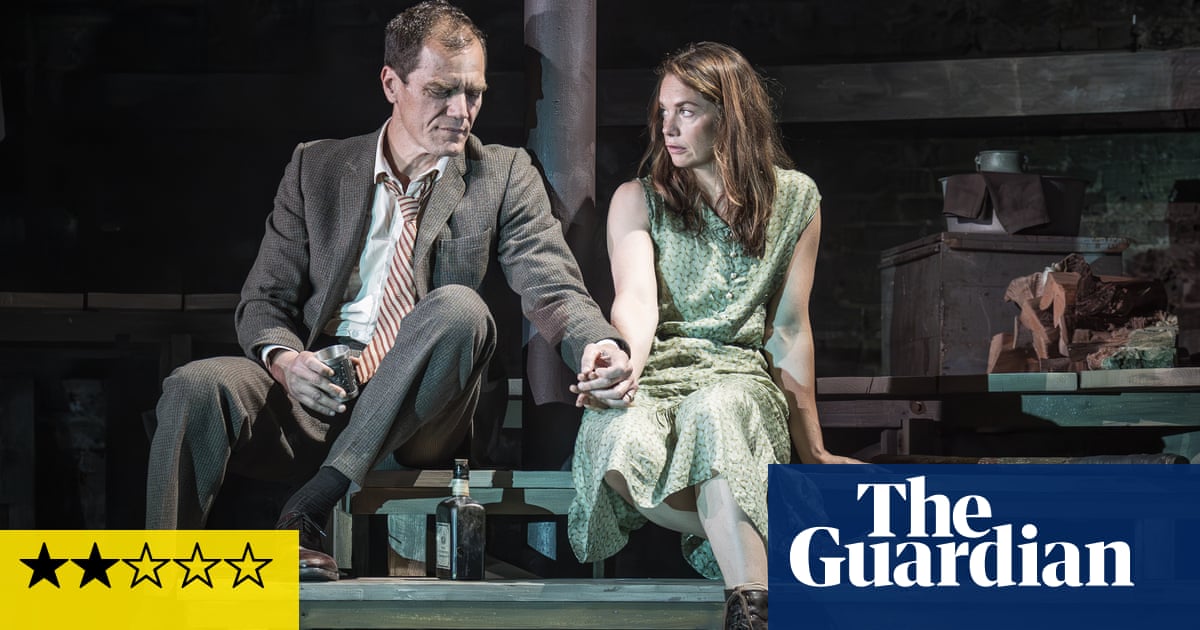Rebecca Frecknall has given some surprising spins to the American canon with her refreshing and untraditional revivals. The surprise in the director’s production of Eugene O’Neill’s final play is that it is served up straight.
Frecknall has stepped back to let the play do the speaking but this faithfulness lays bare the datedness of the drama, which creaks with age at times. The production itself seems imbalanced too: glacial in pace, it stretches across three hours, not gathering enough intensity and chugging anti-climactically to its end.
Dissolute farmer Phil Hogan (David Threlfall) dreams up a scheme for his daughter, Josie (Ruth Wilson), to seduce the wealthy landlord James Tyrone (Michael Shannon) as a ploy to blackmail him and keep the farm from being sold to a neighbour. So Josie and James spend a moonlit night together, flirting, drinking, arguing and proclaiming love which may or may not be real. An hour in, it feels as if the play is simply circling its plot rather than arriving at its purpose. More than two hours later, Josie and James’s relationship reveals some vulnerability.
Wilson is, as always, magnetic in her stage presence, in farm-hand dungarees with the hint of Irishness to her American accent, while Threlfall is convincing as the bullish, wayward father. But characters hover between the roguish, melodramatic and tragic, speaking in scheming monologues which arrest psychological development. Tom Scutt’s set design looks stagnant under a beige wash of timber, planks and ladders, the inside of the farm wall-less but without the intrigue this exposure might bring.
As inLong Day’s Journey Into Night(to which this play is a sequel), illusion wrestles with truth, reality and revelation: James is a city type who drinks heavily and reveals deeper, mournful dimensions; Josie has a brazen reputation about town (the “scandal of the countryside”) but one of the mysteries of the plot lies around her sexual virtue. Her story feels oddly – jarringly – eclipsed by James’s outpouring of grief and guilt, along with his glaring madonna/whore fantasy, which shapes their dynamic.
Female sexuality as a whole is defined by the men around Josie either as threat or currency with which to bargain for advantage. Josie’s breasts are casually, repeatedly, admired and women are referred to as sluts and pigs. While this may be of its world – an early 20th-century hardscrabble farm community in Connecticut – it gives the play an old-fashioned, queasy feel. The drama ends with what seems like Josie’s transformation into a would-be saviour for the suffering man that James embodies. “Mother me, Josie, I love it,” he says, and she obliges. Is O’Neill suggesting this was Josie’s moral lesson to learn?
Perhaps not, but too much of the play creaks with what feel like anachronisms. Frecknall is sometimes charged with being too overbearing a director but this production might have benefited from bigger, bolder revisionism.
At theAlmeida theatre, London, until 16 August
